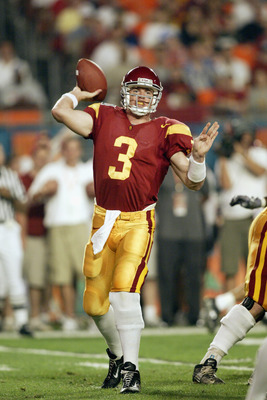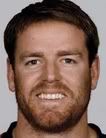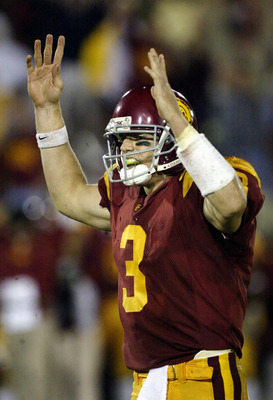USC first fielded a football team in 1888. Playing its first game on November 14 of that year against the Alliance Athletic Club, gaining a 16–0 victory. Frank Suffel and Henry H. Goddard were playing coaches for the first team which was put together by quarterback Arthur Carroll; who in turn volunteered to make the pants for the team and later became a tailor. USC faced its first collegiate opponent the following year in fall 1889, playing St. Vincent's College to a 40–0 victory.
Before they were named Trojans in 1912, USC athletic teams were called the Methodists, as well as the Wesleyans. During the early years, limitations in travel and the scarcity of major football-playing colleges on the West Coast limited its rivalries to local Southern Californian colleges and universities. During this period USC played regular series against Occidental, Caltech, Whittier, Pomona and Loyola. The first USC team to play outside of Southern California went to Stanford University on November 4, 1905, where they were trampled 16–0 by the traditional West Coast powerhouse. While the teams would not meet again until 1918 (Stanford dropped football for rugby union during the intervening years), this was also USC's first game against a future Pac-12 conference opponent and the beginning of its oldest rivalry. During this period USC also played its first games against other future Pac-12 rivals, including Oregon State (1914), California (1915), Oregon (1915) and Arizona (1916).
Between 1911–1913, USC followed the example of California and Stanford and dropped football in favor of rugby union. The results were disastrous, as USC was soundly defeated by more experienced programs while the school itself experienced financial reverses; however, it was during this period that Owen R. Bird, a sportswriter for the Los Angeles Times, coined the nickname "Trojans", which he wrote was "owing to the terrific handicaps under which the athletes, coaches and managers of the university were laboring and against the overwhelming odds of larger and better equipped rivals, the name 'Trojan' suitably fitted the players."
After several decades of competition, USC first achieved national prominence under head coach "Gloomy" Gus Henderson in the early 1920s. Another milestone came under Henderson in 1922, when USC joined the Pacific Coast Conference (PCC), the forerunner of the modern Pac-10. Success continued under coach Howard Jones from 1925 to 1940, when the Trojans were just one of a few nationally dominant teams. It was during this era that the team achieved renown as the "Thundering Herd", earning its first four national titles.
USC achieved intermittent success in the years following Jones' tenure. Jeff Cravath, who coached from 1942–1950, won the Rose Bowl in 1943 and 1945. Jess Hill, who coached from 1951 to 1956, won the Rose Bowl in 1953.
The late 1950s saw a "pay-for-play" scandal involving several PCC schools, including USC, tear the conference apart. The PCC eventually dissolved in 1959, and USC joined the PCC's other three California schools and Washington in immediately forming a new conference, the Athletic Association of Western Universities, under a new charter. After absorbing all of the PCC's final members except for Idaho, the AAWU would change its name to the Pacific-8 Conference in 1968, the Pacific-10 after the 1978 entry of Arizona and Arizona State, and the Pacific-12 after the 2011 entry of Colorado and Utah. (The Pac-12 officially claims the PCC's history as its own, despite the change in charter.)
The program entered a new golden age upon the arrival of head coach John McKay (1960–1975). During this period the Trojans produced two Heisman Trophy winners (Mike Garrett and O.J. Simpson) and won four national championships (1962, 1967, 1972 and 1974). McKay's influence continued even after he departed for the NFL when an assistant coach, John Robinson (1976–1982), took over as head coach. Under Robinson, USC won another national championship in 1978 (shared with Alabama; ironically, USC defeated Alabama, 24–14, that same season) and two more players won the Heisman Trophy (Charles White and Marcus Allen). On September 12, 1970, USC opened the season visiting the University of Alabama under legendary coach Paul "Bear" Bryant and became the first fully integrated team to play in the state of Alabama. The game, scheduled by Bryant, resulted in a dominating 42-21 win by the Trojans. More importantly, all six touchdowns scored by USC team were by African American players, two by USC running back Sam "Bam" Cunningham, against an all-white Crimson Tide team. After the game, Bryant was able to persuade the university to allow African American players to play, hastening the racial integration of football at Alabama and in the South. In the 1980s, USC football did not realize a national championship, though it continued to experience relative success, with top-20 AP rankings and Pac-10 Conference championships. Under head coaches Ted Tollner (1983–1986) and Larry Smith (1987–1992), each winning the Rose Bowl once, USC was recognized among the nation's top-ten teams three times. However, some alumni had grown accustomed to the programs' stature as a perennial national championship contender. In 1993, Robinson was named head coach a second time, leading the Trojans to a victory in the 1996 Rose Bowl over Northwestern.
Before they were named Trojans in 1912, USC athletic teams were called the Methodists, as well as the Wesleyans. During the early years, limitations in travel and the scarcity of major football-playing colleges on the West Coast limited its rivalries to local Southern Californian colleges and universities. During this period USC played regular series against Occidental, Caltech, Whittier, Pomona and Loyola. The first USC team to play outside of Southern California went to Stanford University on November 4, 1905, where they were trampled 16–0 by the traditional West Coast powerhouse. While the teams would not meet again until 1918 (Stanford dropped football for rugby union during the intervening years), this was also USC's first game against a future Pac-12 conference opponent and the beginning of its oldest rivalry. During this period USC also played its first games against other future Pac-12 rivals, including Oregon State (1914), California (1915), Oregon (1915) and Arizona (1916).
Between 1911–1913, USC followed the example of California and Stanford and dropped football in favor of rugby union. The results were disastrous, as USC was soundly defeated by more experienced programs while the school itself experienced financial reverses; however, it was during this period that Owen R. Bird, a sportswriter for the Los Angeles Times, coined the nickname "Trojans", which he wrote was "owing to the terrific handicaps under which the athletes, coaches and managers of the university were laboring and against the overwhelming odds of larger and better equipped rivals, the name 'Trojan' suitably fitted the players."
 College Football is Still |  Carson Palmer started |  CARSON PALMER\x26#39;S USC and PAC-10 |  Carson Palmer (Getty Images) |  Carson Palmer, USC\x26#39;s |
 Current Stats: 64% passes |  Carson Palmer, USC |  Reggie Bush |  Tags: carson palmer |  Tags: carson palmer |
The late 1950s saw a "pay-for-play" scandal involving several PCC schools, including USC, tear the conference apart. The PCC eventually dissolved in 1959, and USC joined the PCC's other three California schools and Washington in immediately forming a new conference, the Athletic Association of Western Universities, under a new charter. After absorbing all of the PCC's final members except for Idaho, the AAWU would change its name to the Pacific-8 Conference in 1968, the Pacific-10 after the 1978 entry of Arizona and Arizona State, and the Pacific-12 after the 2011 entry of Colorado and Utah. (The Pac-12 officially claims the PCC's history as its own, despite the change in charter.)
 #1 Star: Carson Palmer, |  A day after his pro-USC, |  Tags: carson palmer |  Carson Palmer, QB, USC |  #9 QB Carson Palmer |
 #9 QB Carson Palmer |  Carson Palmer Photos - The |  Carson Palmer USC |  Carson Palmer | For three years, Mitchel Musso |
No comments:
Post a Comment